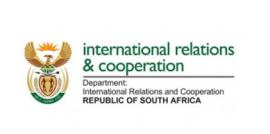
BRUSSELS, Jan 27 (NNN-MERCOPRESS) — The European Union called for broad political talks in Venezuela to set up new elections and warned that it stands ready to slap sanctions on more senior Venezuelan officials in the country if they undermine democracy or take part in human rights violations.
EU foreign ministers said in a statement that “the only way out of the crisis in Venezuela is to resume political negotiations promptly and to urgently establish a Venezuelan-led dialogue and transition process leading to credible, inclusive and transparent local, legislative and presidential elections.”
Venezuela is mired in a deep economic crisis, which critics blame on two decades of failed socialist policies that have left the nation bankrupt and its crumbling infrastructure.
Describing the Dec 6 elections as “a missed opportunity for democracy” whose results they cannot endorse, the ministers said the 27-nation bloc stands ready to send an observer mission should new polls take place.
They called for the “freedom and safety” of all political opponents to be ensured, “especially Juan Guaidó, as well as other representatives of the democratic opposition.” The opposition leader claimed presidential powers in early 2019 as head of Venezuela’s National Assembly.
A coalition of more than sixty nations recognized him, including the United States and most EU countries, saying that President Nicolás Maduro had clung to power after undemocratic elections.
In a tweet, Guaidó’s communications office welcomed the EU’s move of rejecting the recent election and expressing support for the opposition-led National Assembly, calling for free and fair parliamentary and presidential elections.
The ministers made no reference to the status of Guaido or that of the assembly. A previous EU statement referred to them as “outgoing,” and this angered the Venezuelan opposition, which believed it sent mixed messages about Maduro’s legitimacy.
Monday’s statement said that the EU considers Guaidó and other opposition officials “to be important actors and privileged interlocutors” and urged them “to take a unified stance with a view to an inclusive process of dialogue and negotiation.” — NNN-MERCOPRESS




